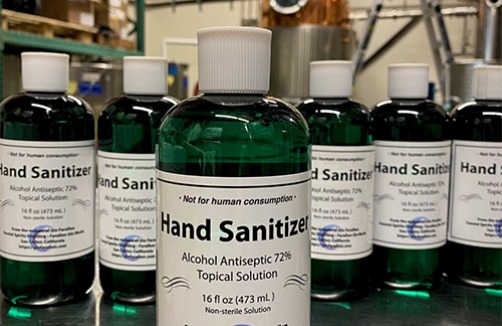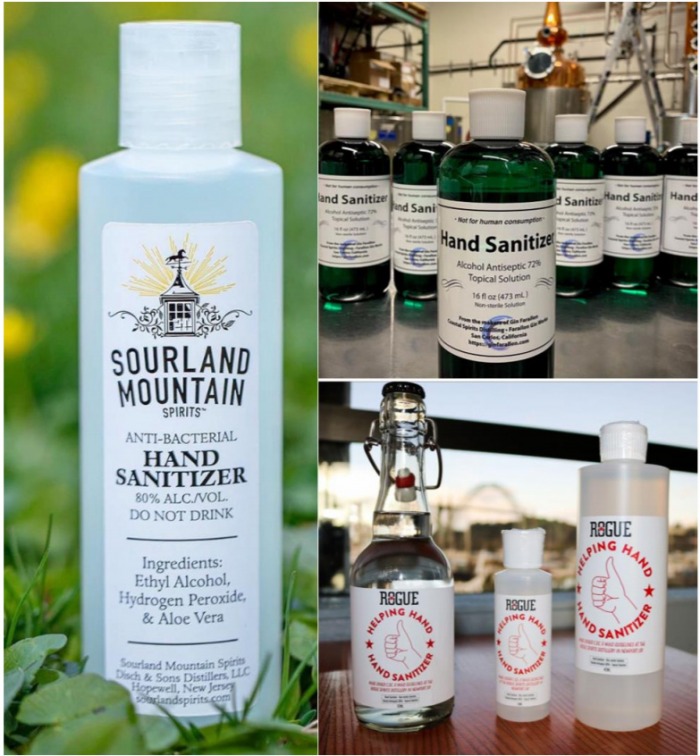
COVID-19 has had a tremendous impact on the way we live our lives and it is easy to focus on the negative impact in the wake of the virus. Even more so, it is important to acknowledge and celebrate the community minded spirit and innovation prevailing throughout this crisis. Corporate social innovation is taking place in many forms, across industries and the nation. These innovations can be seen in distilleries which have altered their business processes in order to produce hand sanitizer.
The high level of demand for hand sanitizer has severely limited availability to consumers and corporate buyers alike. On March 18 the FDA granted temporary permission for firms, including distilleries, to produce and distribute hand sanitizer according to policy guidelines. Once permitted, many distilleries started the process of sourcing the additional ingredients and new packaging required.
As Erica Disch of Sourland Mountain Spirits in Hopewell, New Jersey explained, “everyone who could, specifically other craft distillers in New Jersey, started to do the same thing so we were all, not just in state but also out of state, competing for the same supplies without having an existing supply chain.” Disch credits her son Sage for utilizing his network to successfully source these components for production, a theme echoed by the other distilleries on this subject.
Brad Plummer of Coastal Spirits Distilling in San Carlos, California said that he sourced these components “through a lot of networking and phone calls. Materials and ingredients became extremely difficult to find very quickly.” In addition, he had to invest in new bottle filling equipment along with the hardware and supplies in order to ship packages of product. When asked why they decided to produce hand sanitizer, the three distilleries communicated a strong commitment to their communities and to their employees. Amanda Zessin of Rogue Ales and Spirits in Newport, Oregon explained that initiatives like this are part of their culture. Hand sanitizer production at Rogue started as an employee passion project which is not out of the norm for their company.
The path to distillery crafted hand sanitizer has been forged by dedicated leaders and the hard work of their teams. While there are some things in common between distilling full proof spirits and producing hand sanitizer, the differences are significant. “Basically, we learned a whole new business in a three-week period,” explained Disch. One result of this new business has been large donations of hand sanitizer to hospitals and first responders along with distribution to consumers, who have been very supportive and positive about the business transition. A sentiment which is being echoed by many during this time: stay safe, stay positive, and support each other.
Cheers.
